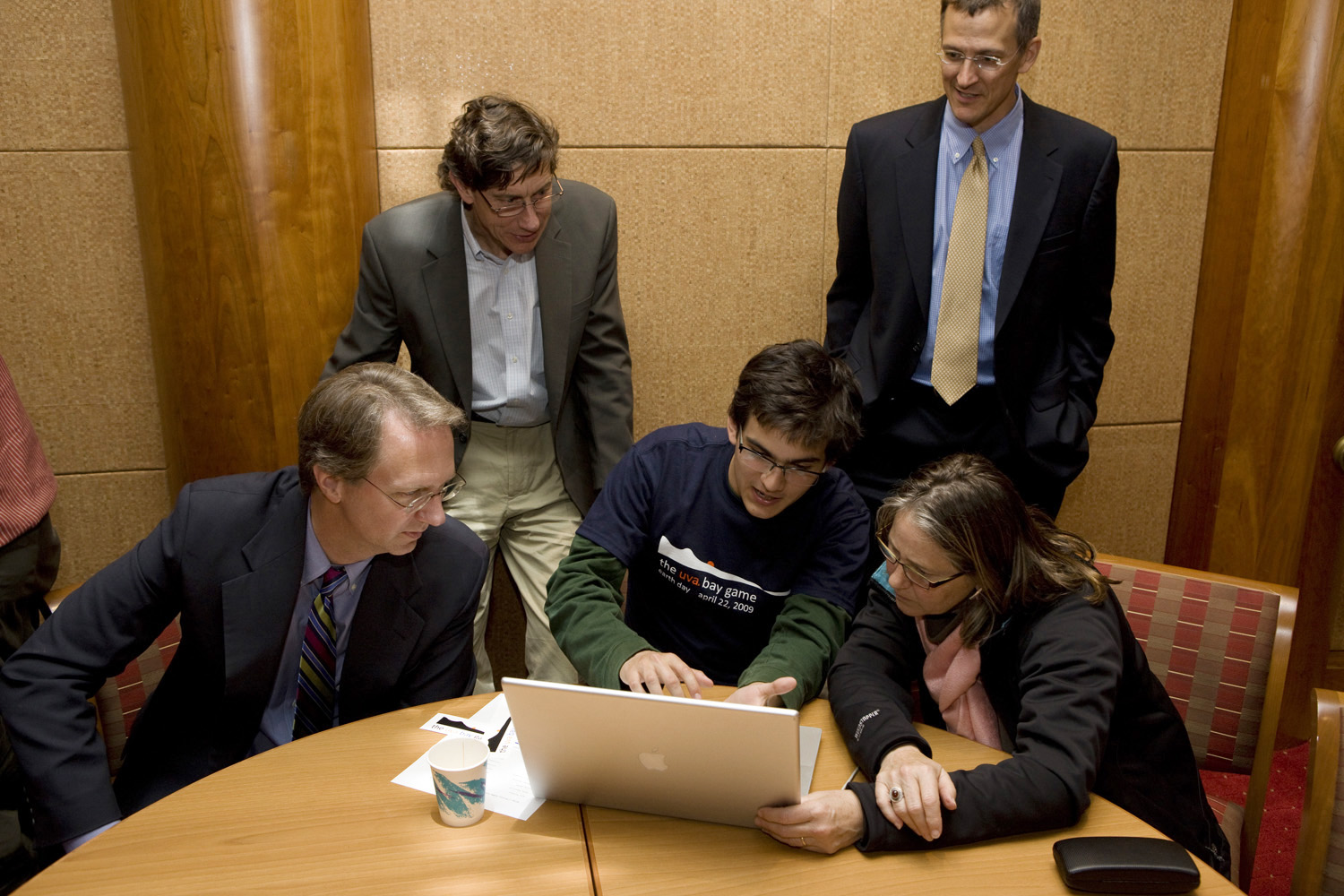April 5, 2010 — On April 8, the University of Virginia and Azure Worldwide, an organization co-founded by Philippe Cousteau, are showcasing a new concept in environmental engagement and action: The Bay Game, an interactive, role-playing game that simulates the conditions of the Chesapeake Bay watershed with players taking the roles of people who live in the watershed and make their livelihoods from the resources of the bay.
The event will be held Thursday at 11:30 a.m. at U.Va.'s Clark Hall.
In the game, players adopt the roles of watermen, farmers, developers and policymakers. As the game goes on, every decision has an impact on the health of the bay and the well-being of those stakeholders.
More than 100 students and about 20 guest participants and experts – including real farmers, watermen, developers and policymakers – will play the game during a two-hour period. Cousteau, and Thomas C. Skalak, U.Va.'s vice president for research, will host.
The game is a tool to help participants determine and demonstrate the importance of political and civic collaboration in conservation efforts.
"The Chesapeake Bay Game's potential as a 'game-changer' in many areas makes it truly unique," Skalak said. "It is our goal for the results of the game to inform public policies, private investment trends and societal behaviors in ways that will enhance human health, economic prosperity and environmental sustainability.”
Cousteau said that the complex environmental, political and social issues facing the Chesapeake Bay require a creative approach to problem-solving.
"Through the Bay Game, U.Va. has created a pioneering tool that considers both environmental impact and the well-being of real people and communities. This project gives people the knowledge to make a positive difference," he said.
Extending over six states and the District of Columbia and covering 64,000 square miles, the Chesapeake Bay watershed is the largest estuary in the United States. It is impacted daily by a broad range of individuals, communities and industries within its boundaries.
Representing the 16.7 million residents in the watershed, players in the Bay Game make decisions based on an assigned stakeholder role. Farmers make decisions about whether to leave land fallow or apply cover crops to their fields, for instance, and land developers decide between regular and sustainable development.
The game provides a scientifically sound and true-to-life method to illustrate what will happen if people take collaborative action and the consequences if they don't.
Media Contact
Article Information
April 2, 2010
/content/uva-and-philippe-cousteau-showcase-chesapeake-bay-game-april-8

